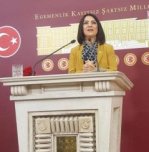Click to read the article in Turkish
The İstanbul Medical Chamber (İTO) has said in a written statement that vaccine hesitancy and anti-vaccination has "reached the potential to become a public health problem" because of the confusing statements by both doctors and "so-called investigative writers."
The number of families who did not vaccinate their children increased to 23 thousand in 2017 from only 183 in 2010, the chamber noted, citing a statement by the Turkish Society of Clinical Microbiology and Infectious Diseases (KLİMK).
Vaccination of children against fatal and infectious diseases is a duty of the Ministry of Health and it should make laws to prevent anti-vaccination, the statement said.
The chamber also called on the government to "terminate the policies of commercializing health" and "start production of medications and vaccines without any profit motive."
CLICK - Health Organizations: 'Vaccine Hesitancy and Vaccine Rejection are not Personal Decisions'
"When we review the claims of anti-vaxxers, we first see that the idea that vaccines are not useful is defended. How can you explain the complete eradication of smallpox, a disease that has caused millions of deaths, after smallpox vaccination?
"How do you explain that diseases, such as measles, whooping cough, diphtheria, tetanus, polio, which can take a fatal course, are not seen today, at least in countries that have fully implemented vaccination programs?"
"Another claim related to vaccines is that aluminum and mercury contained in the vaccines harm children and cause autism and hyperactivity syndromes.
"Dozens of studies have been conducted about this claim, which arose from an article with no scientific evidence, and the latest study on 95,727 children in the US in 2015 found no association between vaccines and autism even in children at higher risk because of their siblings having autism.
"In addition, the amount of aluminum and mercury in vaccines has been greatly reduced in recent years. It is also unacceptable that so-called investigative writers telling parents, 'Look at the contents of the vaccines and then make a decision,' as if there are dozens of options." (TP/VK)









kkk.jpg)